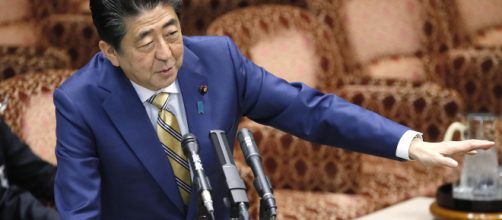People in Japan recently voted on members of its House of Councillors. The House of Councillors is the upper house of Japan's legislature, the National Diet. The results of the vote have Prime Minister Shinzo Abe set to remain in office. He's likely to become the longest-serving Japanese prime minister in history. He's in his second stint as PM, holding the title since 2012. He'd previously held it from 2006 to 2007.
Abe is the leader of the Liberal Democratic Party. Despite the 'liberal' name, the party is actually a conservative one. This can be found elsewhere in the world, such as in Australia.
The LDP and its coalition partner, Komeito, had a strong showing.
Victory by a healthy margin
Seats won by Abe's coalition amount to a strong majority in the House of Councillors. Though, as Bloomberg indicates, it fell just shy of winning enough seats to claim a supermajority.
A supermajority is crucial for Abe. He has been hoping to enact several major reforms in Japan. A legislative supermajority is often required to pass such reforms. Abe and his allies would now have to seek out support from at least some opposition members.
Also receiving a significant amount of votes were two new anti-nuclear parties. The Constitutional Democratic Party is led by Yukio Edano. Edano is the current leader of the opposition and a former minister of economy, trade, and industry.
The Democratic Party for the People is led by Yuichiro Tamaki.
The Japanese Communist Party and the nationalistic party Nippon Ishin no Kai also won several seats. A rough translation of the latter party's name comes out to Japan Innovation Party. Kibo no To, roughly translated to Party of Hope, and the Social Democratic Party won a smaller amount.
Historic election
The election had already been making headlines coming in for the historic number of female candidates. Some have speculated that it could signal a major shift in Japanese society. Japan has long been a famously male-dominant culture.
Additionally, there were two victories that were especially impressive. In addition to the treatment of women, Japanese culture has often been callous towards people with disabilities.
There may be a major shift in views happening, as Reuters reports. Two candidates with major health issues have won seats in the House of Councillors.
Yasuhiko Funago has Amyotrophic Lateral Sclerosis, or ALS. Eiko Kimura, one of the historic number of women candidates, has cerebral palsy. ALS is a neurological disease that causes loss of muscle use. Cerebral palsy cause symptoms such as involuntary muscle movements.
Another woman running was Rie Saito, as a member of the Constitutional Democratic Party. Saito was born deaf and would've been the first deaf member of the legislature since before World War II. However, she was unsuccessful.


